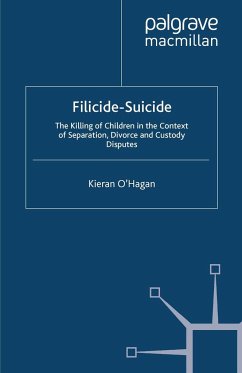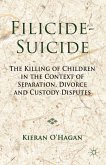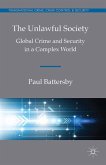O'Hagan explores the phenomenon of filicide, a deliberate act of a parent killing his or her own son or daughter. Examining over 120 cases of filicide in the UK, this book identifies relationship and family patterns in which situations may rapidly deteriorate, and children may become the ultimate weapon in disputes between partners.
"Kieran O'Hagan's latest contribution to the child protection literature once again challenges the dominant orthodoxies. O'Hagan passionately and ethically analyses the killing of children in separation, divorce and custody disputes.This powerful and descriptive work will resonate in child protection systems around the world. O'Hagan closely examines the awful, final symbolism of many of these devastating acts. The research will contribute to the work of all those involved in child protection: social workers, nurses, doctors, police, lawyers and judges. Many children would be safer if there were fewer bureaucratic responses to these tragedies and more original and perceptive thinkers like O'Hagan contributing to this important area of practice." - Chris Goddard, Monash University, Australia
"...the comprehensiveness of the book makes it particularly useful as a resource to dip in and out of. It would be of benefit to social workers, criminal justice practitioners, domestic violence workers, family lawyers in fact, almost anyone who has professional contact with, or an interest in, family conflict and violence. It would also serve policymakers well O'Hagan's final chapter makes some important policy recommendations based on his conclusion that filicide-suicide is both preventable and predictable..." - Amanda Holt, British Journal of Criminology
"...the comprehensiveness of the book makes it particularly useful as a resource to dip in and out of. It would be of benefit to social workers, criminal justice practitioners, domestic violence workers, family lawyers in fact, almost anyone who has professional contact with, or an interest in, family conflict and violence. It would also serve policymakers well O'Hagan's final chapter makes some important policy recommendations based on his conclusion that filicide-suicide is both preventable and predictable..." - Amanda Holt, British Journal of Criminology








